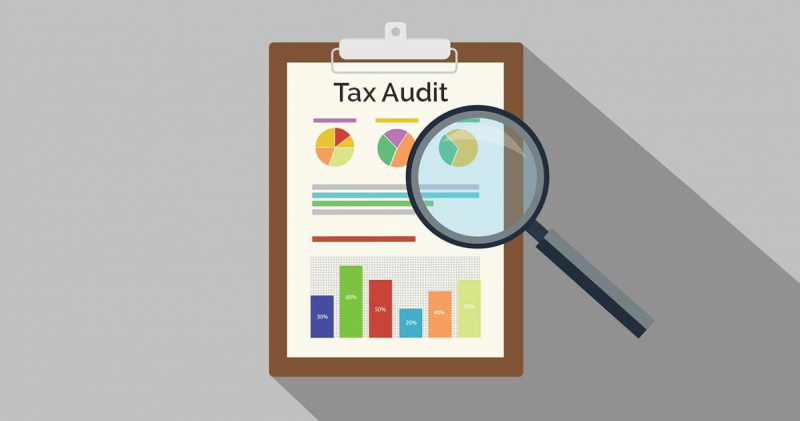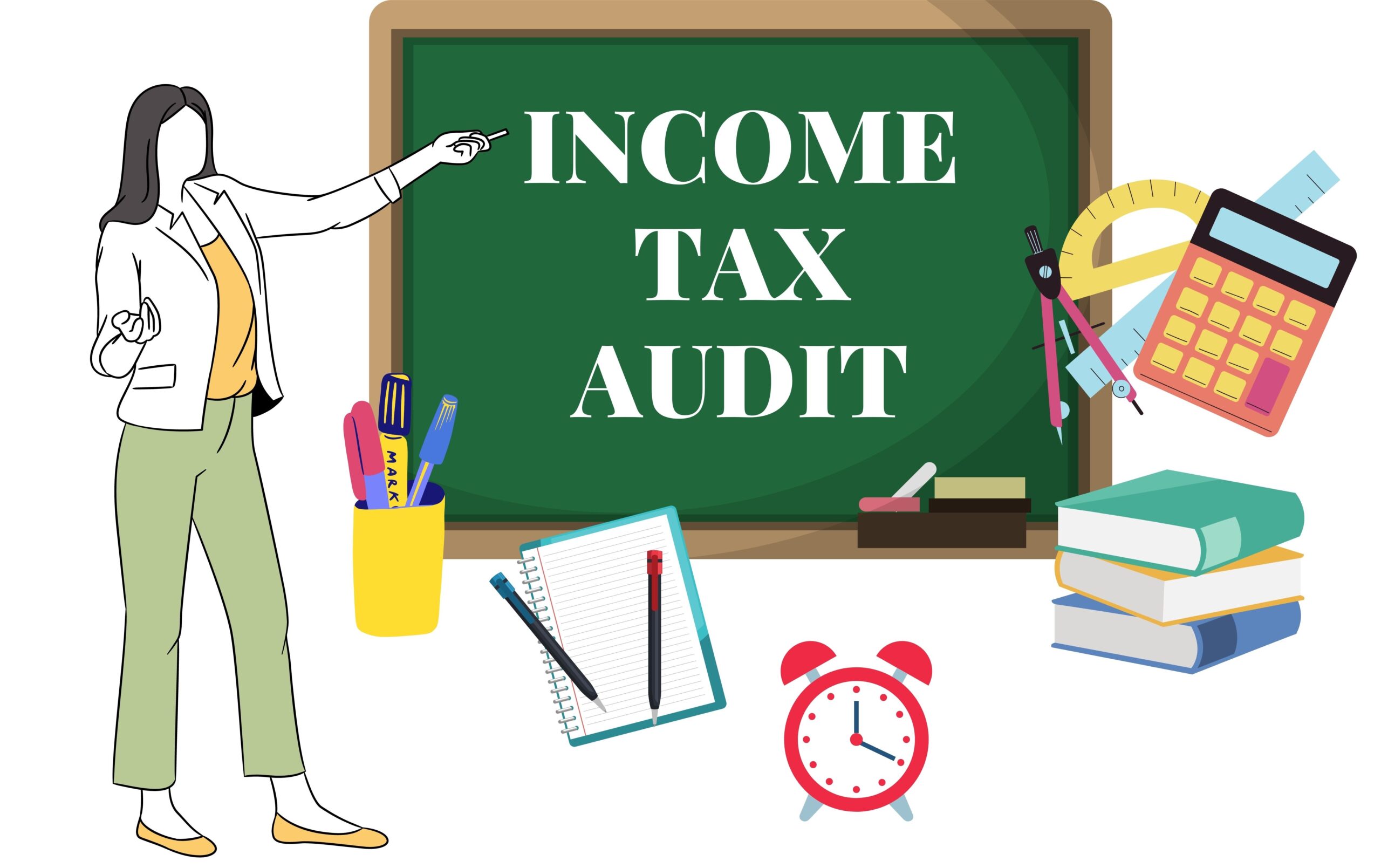Tax Audit Applicability for AY 2023-24

Tax Audit Applicability for AY 2023-24
Tax audit applicability for AY 2023-24 - Income tax filing is a crucial component of running any business with a turnover exceeding a certain limit. Section 44AB of the Income Tax Act of 1961 mandates all businesses and people involved in certain professions to get their account books audited by a chartered accountant. Tax audits involve inspecting and examining the account books, to ensure their compliance with the Income Tax Act and keep a check on fraudulent practices. If you wish to learn more about the Tax audit applicability for AY 2023-24 read this blog compiled by our experts at Prakasha & Co.
In this blog, we have covered the criteria for tax audit applicability, changes in tax audit rules and their impact, and penalties for non-compliance. It comprehensively covers everything you may need to know about the Tax audit applicability for AY 2023-24.
Income Tax Audit Limit for AY 2023-24
To learn about the Tax audit applicability or its components, it is important to learn about the different categories of taxpayers needing a tax audit. The categories of these professionals largely depend on the nature of income, turnover, and profit. Learn more about the various professions requiring income tax audits for their organizations are summarized below: Businesses whose gross revenue or turnover surpasses INR 1 crore, are eligible to conduct a tax audit. The professionals whose gross receipts surpass Rs. 50 lakhs are required to conduct a tax audit for compliance with all the rules and regulations. Taxpayers opting for a presumptive income scheme under Section 44AD, 44ADA, or 44AE shall undergo a tax audit on exceeding the basic exemption limit. People involved in certain professions such as horse racing, owning racehorses, earning income from the lottery, or gambling are usually subjected to tax audits. All these professions are eligible for tax audits.|
Different Professions |
Tax Limit |
| Businesses with >5% cash transactions | 1 crore INR |
| Businesses with ≤5% cash transaction | 10 crores INR |
| Presumptive taxation scheme under section 44AD | 3 crores INR |
| Professionals with gross receipts in the previous year's FY | 75 lakhs INR |
| Section 10(23C) Entities | Annual receipts exceed INR 5 crore |
| Section 11 Trusts | Annual receipts exceed the maximum non-taxable amount. |
Objectives of Income Tax Audit
Tax audits are not merely precautionary steps but are deemed mandatory as per the Income Tax Act 1961. There can be three types of tax audits depending on the location and entire procedure of the audit conduction. The tax audit could be a field audit, office audit, or correspondence audit. As the tax auditors examine financial records, transaction details, and tax compliance they successfully identify several discrepancies in the tax filing. The main objectives of any tax audit are summarized below:- Create financial transparency in any business
- Significantly reduce the chances of any errors in tax compliance
- Help avoid underpayment or overpayment of taxes by comprehensive assessment of tax liabilities
- Ensure error-free and accurate financial statements to maintain credibility
- Makes sure that the books of accounts are properly maintained and certified by the concerned authorities.
- Helpful in verifying the accuracy of the income tax returns filed with the IT department.
Tax Audit Applicability for AY 2023-24
With a plethora of rules and regulations about tax audits and income tax filing, it can be confusing for business owners or professionals to know about the Tax audit applicability for AY 2023-24. We have divided audit applicability for AY 2023-24 separately in the table given below:|
For Business |
For Professionals |
|
|
Changes in Tax Audit Rules and Its Impact
Several amendments have been made to the tax audit laws ever since the launch of the Income Tax Act in 1961. These changes have impacted the threshold limit for tax audits, penalties, extension due to date, and reporting requirements. The key changes related to these points are briefed below:- Penalty for non-compliance with tax audit increased from 0.5% to 0.75% of the turnover gross receipts.
- Due date for tax audits extended to 31st January of the assessment year.
- The threshold limit for tax audits has increased from INR 5 crore to INR 10 crore.
- Tax audit report shall include additional information related to international transactions, tax demands, and refunds.
Penalty for Non-Complying With Audit Limit for AY 2023-24
The failure to comply with the tax audit requirements can result in severe penalties and consequences. The penalties for non-compliance with tax audits could be due to several reasons such as late filing of tax audit reports, inaccurate reporting, non-cooperation, concealment of income, and various other reasons. There can be severe consequences of non-compliance such as prosecution, damage to reputation, increased scrutiny from tax authorities, and interest on unpaid taxes. The penalty associated with non-compliance with the tax audit limit for AY 2023-24 is briefed below:- Penalty of 0.5% on the total sales due to delay in filing of the tax audit report.
- Penalty of up to 50% of the tax payable on the under-reported income on inaccurate reporting.
- Penalty of up to 200% of the tax on the concealment of income.
- Non-cooperation with the tax authorities can also put you at risk for a penalty.
- Under-reporting of income from international transactions or not maintaining proper books of accounts can also lead to severe penalties from tax authorities.
Choose Prakasha & Co. for Conducting Tax Audits in Your Organization
Prakasha & Co. is the best audit firm in Bangalore. Our team of Chartered Accountants has extensive experience in conducting tax audits for several business owners and organizations. We cater to diverse business domains and conduct comprehensive tax audits to thoroughly examine the financial statements and identify any discrepancies in the business policies of the company. Our experts adhere to all the tax rules and regulations and reduce the chances of any errors. The key reasons why you should associate with Prakasha & Co. for a tax audit for your business are briefed below:- Meet the specific business requirements of our clients
- A team of highly qualified and professional chartered accountants
- Highly affordable and budget-friendly accounting services
- Standard audit report as per your business requirements.
Contact the Best Audit Firm At!
Phone: +91 7019 827 351
Email: crp@prakashaandco.com Update: The Finance Budget 2023-24 has increased the presumptive taxation limits under Sec 44AD and Sec 44ADA from FY 2023-24 (FY 2023-24 onwards) as below| Category | Previous limits | Revised limits |
| Section 44AD: For small businesses-providers | Rs. 2 crore | Rs. 3 crore* |
| Section 44ADA: For professionals like doctors, lawyers, engineers, CA, CS, Consultants etc. | Rs. 50 lakh | Rs. 75 lakh |
Frequently Asked Questions (FAQs)
1. What is a tax audit?
Tax audit is an inspection conducted by the chartered accountants to review the account books and financial policies of a business or an individual. The Indian Income Tax Act 1961 has made it mandatory for the individuals and businesses to conduct a tax audit from either internal or an external party, if they exceed the tax audit applicability limit.2. What is the accepted format of tax audit report?
There are mainly two formats made acceptable by the income tax authorities. Form No. 3CA/3CB is a format of audit report, whereas Form 3CD is a Statement of particulars required to be furnished under Section 44AB of the Income-tax Act.3. How can I avail the benefit of the enhanced limit of INR 10 crores for the tax audit?
The increased threshold limit of INR 10 crores is applicable only if cash receipts and cash payments during the year do not exceed 5% of the total receipt or payment. You can avail the benefits of the enhanced limit if more than 95% of your business transactions have occurred through banking channels.4. Is a salaried employee required to get accounts audited if he is also doing trading in derivatives ?
To know the applicability of tax audit in this scenario you need to check the turnover from trading in derivatives and get it computed first. Whether, or not the tax audit is applicable depends on the computation of turnover. If the total sales, turnover, or gross receipt from the business during the previous year exceeds INR 1 crore the tax audit is applicable.Like Us On Facebook

Our Client's Review
ExcellentBased on 42 reviews
 Nitesh P2023-07-31Best place to file ur GST n IT returns .. They respond quickly, communicate well and get ur work done as per ur needs in a very short time ..
Nitesh P2023-07-31Best place to file ur GST n IT returns .. They respond quickly, communicate well and get ur work done as per ur needs in a very short time .. Raghavendran V2023-07-27Best place for Income tax filing
Raghavendran V2023-07-27Best place for Income tax filing Shruti Pb2023-07-17Of all the CA, CS teams I have interacted with, they are the most prompt and organized. I have taken their services for almost 3 years now for various things like income tax queries, income tax filing, networth certificates, and compliance certificates. They always display a clear understanding of the law and are also able to explain it to you in layman terms. Overall a very resourceful and courteous team. Thank you for the support!
Shruti Pb2023-07-17Of all the CA, CS teams I have interacted with, they are the most prompt and organized. I have taken their services for almost 3 years now for various things like income tax queries, income tax filing, networth certificates, and compliance certificates. They always display a clear understanding of the law and are also able to explain it to you in layman terms. Overall a very resourceful and courteous team. Thank you for the support! Suvadhana B2023-03-13Best company secretary I bangalore ever seen such quick quality service
Suvadhana B2023-03-13Best company secretary I bangalore ever seen such quick quality service Heenarustam Sayal2023-03-12Prakasha & Co has been a lifesaver for me when it comes to my tax dispute and filings with IT office. They are always very responsive and helpful whenever I have any questions or issues, I recently had an issue with my sister business GST filings, and they were able to quickly identify the issue and help me resolve it. They really go above and beyond to make sure their clients are taken care of.
Heenarustam Sayal2023-03-12Prakasha & Co has been a lifesaver for me when it comes to my tax dispute and filings with IT office. They are always very responsive and helpful whenever I have any questions or issues, I recently had an issue with my sister business GST filings, and they were able to quickly identify the issue and help me resolve it. They really go above and beyond to make sure their clients are taken care of. moh Samn2023-02-17''The team at Prakasha& Co made sure my company was compliant with all the legal requirements. Their attention to detail and timely response was truly remarkable."
moh Samn2023-02-17''The team at Prakasha& Co made sure my company was compliant with all the legal requirements. Their attention to detail and timely response was truly remarkable." Rizwan RS2023-02-17"I was impressed with the level of customer service provided by Prakasha& Co. They were always available to answer my questions and provide guidance throughout the company registration process."
Rizwan RS2023-02-17"I was impressed with the level of customer service provided by Prakasha& Co. They were always available to answer my questions and provide guidance throughout the company registration process."
Important Links
- Top 10 GST Registration Consultants in Bangalore
- Top 10 Best Income Tax Lawyers in Bangalore
- Top 10 Trademark Registration Consultants in Bangalore
- GST Registration in Bangalore
- Private Limited Company Registration in Bangalore
- Partnership Firm Registration in Bangalore
- Proprietorship Registration in Bangalore
- Trademark Registration in Bangalore
- Audit Frim in Bangalore
- CA Firm in Bangalore
- Accounting Services in Bangalore
- GST Lawyers in Bangalore
- Payroll Services Provider in Bangalore
- Payroll Consultant in Bangalore
- Income Tax Lawyer in Bangalore
All Categories
- Audit
- Blogs
- Bookkeeping Services
- Company Registration
- Company secretary Legal & Chartered Accountant
- Digital Signature Certificate (DSC) Services
- FSSAI Registration and Consultation
- GST
- Income tax
- Partnership Firm Registration
- Payroll Services
- Startup Registration Process
- Trademark Registration
- Uncategorized







